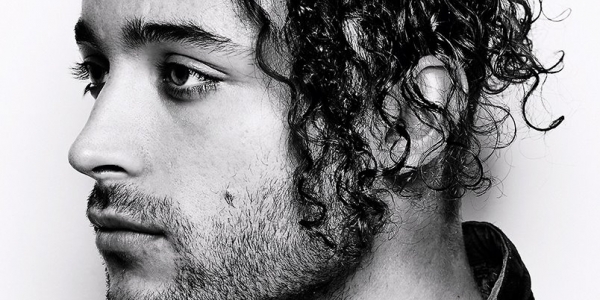“I keep almost making it, then deciding to make it into an EP and then putting songs aside,” he says. “I feel like I’m still improving and coming to terms with what I want to do as an album. I want it to be really good when I do it. EPs are a less high pressure scenario.”
Although he’s just 24 years old, Key Sung’s no novice when it comes to the creation of full-length records. Back in 2009, he released an LP with the experimental electronic group Psuche. The following year, he and fellow Psuche member Martin King broke away to form Oscar + Martin, a fruitful partnership that culminated in 2011’s For You LP. When his focus shifted to Oscar Key Sung in early 2012, he had some specific stylistic parameters in mind.
“I wanted everything to have a restraint to it in the arrangements,” he says. “I wanted the elements to be limited so that there would be a lot of focus on bass sounds and sampled voice and then have the main focus be about the feel of things.”
The fundamental restraint of Oscar Key Sung’s material doesn’t limit its dynamic scope. Among Altruism’s six tracks, the likes of Skip and Brush edge towards a straight-up pop sound, while Premonition and Light take a lateral look at R&B and Inside Job is an avant garde instrumental.
“I try to not just have five of the same song, but still try to create a thread,” Key Sung says. “Basically there’s an idea I’ve got for the EP and within it there are the levels of extremity. So Inside Job is obviously on the exterior, then it kind of gets closer and closer to pop. That’s an aspect of it, but they’re also just the songs I made. If I made one track a certain way, I felt I didn’t need to repeat that idea in the next track.
“Something I’m still trying to think about in my solo stuff is spaces,” he adds. “The idea of going from a small room to a large room to an expansive space to an underground/ underwater space. That’s what I try to do through the tracks. Rather than adding a sax line, I’ll choose to go underwater for a bit.”
Akin to All I Could Do from Holograms, songs like Skip and Brush highlight Key Sung’s knack for writing instantly memorable electro-R&B numbers. While many songwriters would happily sacrifice limbs to possess such melodic flair, pumping out catchy hits isn’t what Oscar Key Sung is all about.
“The issues I have with some pop music is that sense of inevitability to the point of feeling a bit like a zombie while you’re listening to it,” Key Sung says. “What I really love is pop music that’s active. Even if it is anti-maximal and really basic, it’s doing something that functions in a way you don’t expect it to. To me when a song comes together and starts to feel real, it’s about a cohesion between the tone of all the melodies and the intention of the words and the feel of everything. I think pop music should be somewhat meaningful.”
With Altruism, Key Sung puts his money where his mouth is. The whole workconveys a dense emotional resonance, which stems as much from Key Sung’s emotively invested vocals and unveiled lyrics as his deft minimalist production. The entire EP is narrated from a solitary perspective, and the lyrics frequently deal with cravings for inter-personal connection. Key Sung explains how the EP’s core themes are a response to the sorts of dilemmas that arise from social privilege.
“You know when you fulfill a stereotype and it’s scary and you disgust yourself?” he says. “Say, like me, you’re male and relatively middle class and relatively white, there’s this whole thing of ‘I’m in a number of positions of entitlement’. When some of those clichés play out, they become an aspect of yourself that you’re not necessarily proud of. A lot of the perspective of the EP is somebody who doesn’t like the world and can see themselves falling into the patterns they find disgusting in other adults. It’s a coming of age thing and feeling like the only way to escape is to be solitary and apart from what everybody else is involving themselves in, because they find it a bit gross.”
In spite of Key Sung’s use of second person pronouns, Altruism isn’t a purely observational work: “It’s a way of releasing some of the ideas of how people have perceived me in the past,” he says, “and trying to come to terms with how I perceive myself beyond what they’ve projected onto me. Then trying to acknowledge what I have done to them and maybe didn’t intend to – and just because I didn’t mean to, it doesn’t mean I didn’t do it.”
BY AUGUSTUS WELBY

